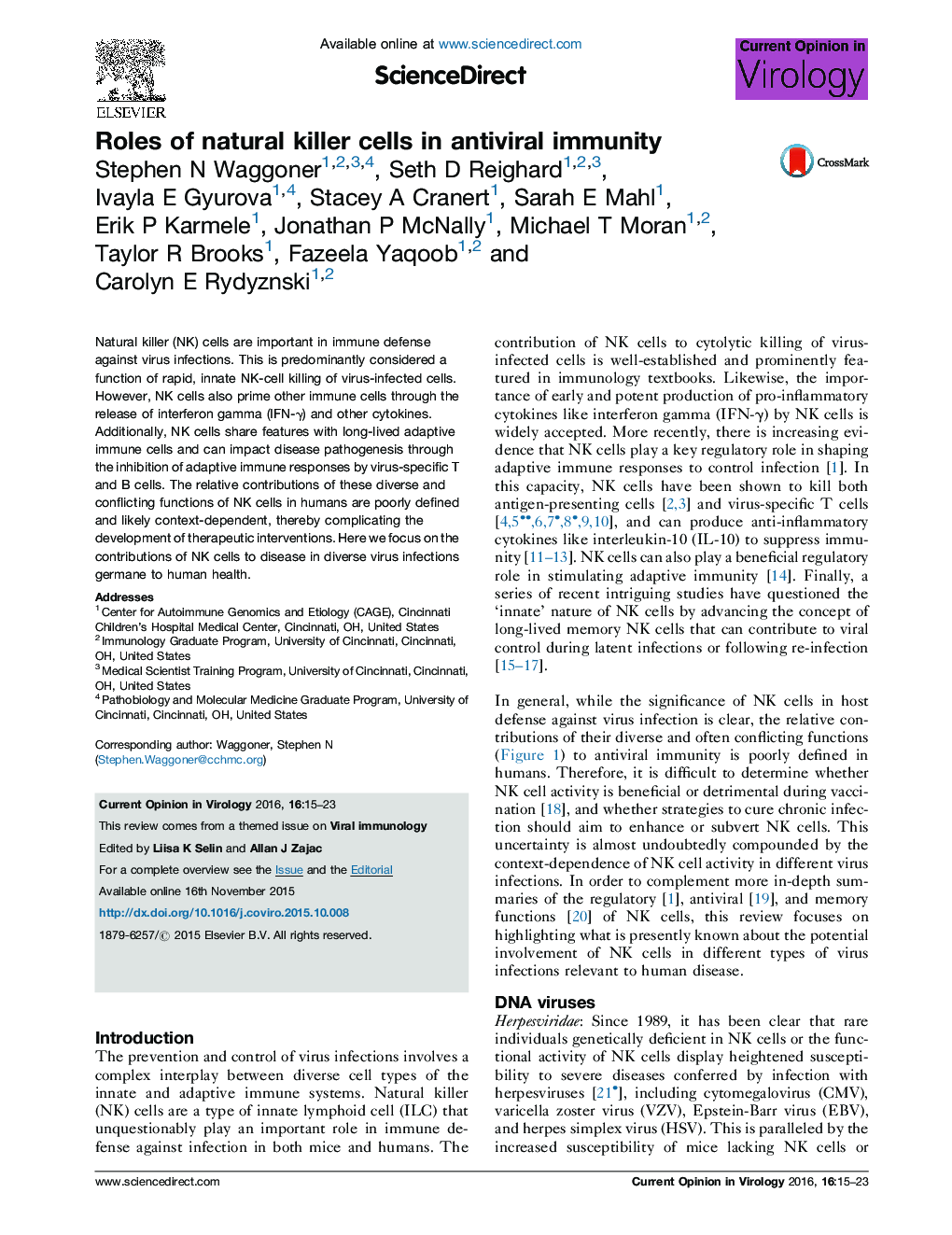| کد مقاله | کد نشریه | سال انتشار | مقاله انگلیسی | نسخه تمام متن |
|---|---|---|---|---|
| 5806657 | 1555910 | 2016 | 9 صفحه PDF | دانلود رایگان |
- NK cells can kill virus-infected cells and protect against severe infections.
- Long-lived memory NK cells may develop after vaccination or infection.
- NK cells are potent regulatory of antiviral T and B cell responses.
- The role of NK cells in human infection is complex and context-dependent.
Natural killer (NK) cells are important in immune defense against virus infections. This is predominantly considered a function of rapid, innate NK-cell killing of virus-infected cells. However, NK cells also prime other immune cells through the release of interferon gamma (IFN-γ) and other cytokines. Additionally, NK cells share features with long-lived adaptive immune cells and can impact disease pathogenesis through the inhibition of adaptive immune responses by virus-specific T and B cells. The relative contributions of these diverse and conflicting functions of NK cells in humans are poorly defined and likely context-dependent, thereby complicating the development of therapeutic interventions. Here we focus on the contributions of NK cells to disease in diverse virus infections germane to human health.
126
Journal: Current Opinion in Virology - Volume 16, February 2016, Pages 15-23
